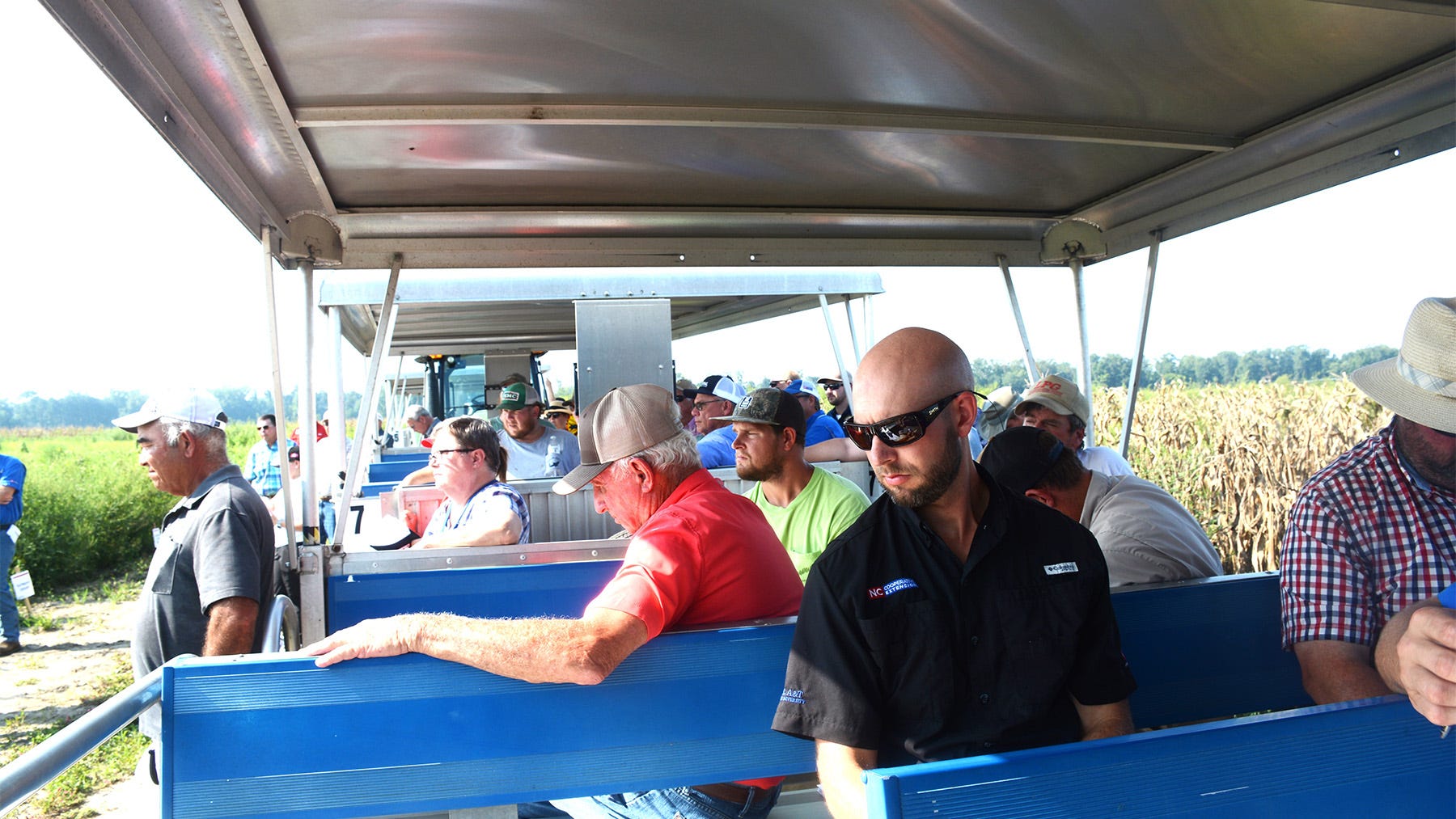
While Admire Pro appears not to be performing as well as it once did for the control of thrips in peanuts, now is not the time for farmers to abandon the technology.
That’s the advice from North Carolina State University Extension Entomologist Rick Brandenburg. He points out that while thrips control is slipping a bit with Admire Pro, the technology still works effectively and has yet to fail in peanut trials conducted at N.C. State.
In fact, in this year’s trials, Brandenburg said Admire Pro actually worked quite well.
“We do know that the general trend in the Southeast that we have seen is that the performance of it appears to be declining a little bit. That doesn’t mean we’re not going to recommend it. It doesn’t mean you shouldn’t use it. It just means right now it’s not performing as well as it did 10 years ago. But it still performs ok,” Brandenburg said in comments at the 71st annual North Carolina Peanut Field Day at the Peanut Belt Research Station in Lewiston-Woodville.

Participants fill the trams at the 71st annual North Carolina Peanut Field Day at the Peanut Belt Research Station in Lewiston-Woodville. (Photo by John Hart)
Away from pyrethroids
Brandenburg also noted that many farmers have shifted away from the use of pyrethroids due to resistance issues with corn earworms and the presence of budworms in peanuts. He said not many pyrethroids are being used in peanuts now because they don’t offer the control farmers need.
In the meantime, Brandenburg made it clear that Lorsban is not coming back as a tool to control rootworms in peanuts. On Aug. 18, 2021, EPA announced it would ban chlorpyrifos, or Lorsban, from all food crops, including peanuts. Beginning in 2022, Lorsban was no longer labeled for use in peanuts. EPA banned the use of chlorpyrifos to protect the health of children and farmworkers.
“Despite what you might read, the active ingredient chlorpyrifos is not coming back. It’s gone, and it will always be gone, so don’t think that one of these days if we complain enough that we don’t have a product that controls rootworm that Lorsban will come back, it’s not,” Brandenburg said.
Still, N.C. State is testing alternatives to Lorsban for rootworm control. He said they began working with the foliar insecticide Steward last year, making foliar applications to kill the beetles before they can lay their eggs.
“If you are making multiple applications of Steward, you’re certainly not going to have many caterpillars out there munching on your vines. It’s going to completely eliminate that. In my opinion, at this point, the verdict is still out on can we use Steward as a foliar application to kill the root worm adults before they lay eggs,” Brandenburg said.
“It has potential. It has multiple benefits. But we still have to collect more data before I feel comfortable that it’s worth the expense because we’ve gone with as many as three applications. And that’s a lot. We got to understand that better. The other thing that we’re trying to do is time it based on the beetle flight because they’re the one coming into the field,” he explained.
Finally, Brandenburg pointed out that despite how hot and dry this summer has been in some areas of North Carolina, few spider mites are popping up in peanut fields.
“We’ve had a few but not many. I think part of that goes back to the fact that we’re using so few pyrethroids for caterpillar control. Pyrethroids often flares spider mites because it kills off all of the beneficial insects that are out there, and spiders, and everything else. And we’re also not using Lorsban which also flares spider mites. If there’s a positivity to the Lorsban being gone, we’re seeing fewer spider mites,” Brandenburg said.
About the Author(s)
You May Also Like






